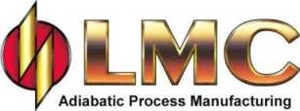LMC, Inc.
설명
straighten and cut, blanking, net shape forming and powder compaction of virtually any metal in its cold state. lmc inc. was established in 1980 to manufacture and service a complete line of presses utilizing the adiabatic manufacturing technology, as well as auxiliary material handling equipment, automation and post processing equipment. the company was founded by lennart j. lindell, one of the world's foremost experts on adiabatic process manufacturing. the apm process can be used in virtually all industrial manufacturing applications. the company also provides precision blanks as a cut-off service to customers through its apm process centers.
during world war ii, scientists observed that piercing armour plates at high velocities produced clean holes with little distortion to the surrounding material. not fully understood, this phenomenon became known to engineers as the adiabatic softening phenomenon. the words adiabatic softening refer to the process in heat-transfer theory, with no heat loss to the surroundings.
in the 1960s, research and development projects on the adiabatic phenomenon were initiated in many countries. but by the end of the decade, most of the effort to successfully build high-speed impact systems for metalwork using adiabatic softening had ceased. it was felt that energy could not be controlled to be utilized in the metalworking environment.
research continued in sweden by lennart lindell, and the first commercially available, high-energy impact press based on compressed-air as the energy source was made during the early 1970s.
mr. lindell left sweden for the united states and in the 1980s he made further development with his patent of a mechanical impact press and tooling system. the energy delivery system of this press helped increase machine cycle times and improve press flexibility.
by creating the condition for the adiabatic softening process and controlling the energy being used, it was found that the cutting action is completed in less than a millisecond, during which time the heat band is only .001 to .003 inch wide. it was found that this limited time and tool engagement reduces the opportunity for deformations.
when metal can no longer conduct heat away at the rate at which it is generated, the temperature increases in the plastically strained zone. the material softens and flow stresses decrease, resulting in reduced energy requirements to move the metal.
the softening is concentrated in the strained zone area. the temperature increases in controlled increments until reaching the melting point. this also eliminates strain hardening.
this is now the technology that is available through lmc inc. with the excalibur press series.
- 회사 전문 분야
- 구직 / 제조업체 연락처
- 신제품 기계 제조업체 - 본부
